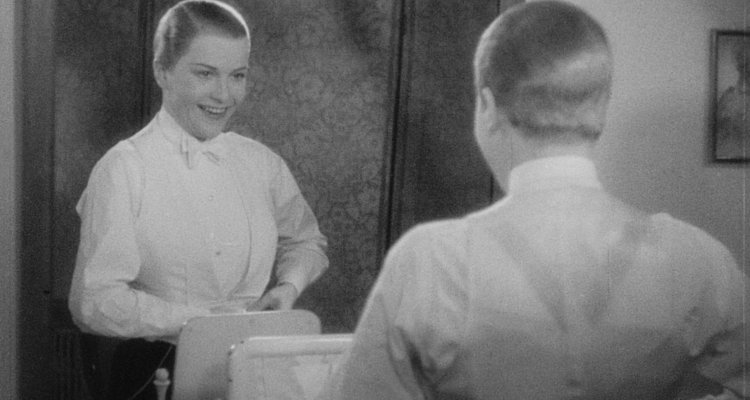Kino Lorber has been busy over the past few months, helping arthouse cinemas survive during the COVID-19 pandemic with its Kino Marquee initiative. And that continues in the month of June with the release of three restored classics in queer cinema that were well ahead of their time.
Kino Lorber is set to release three films, “Mädchen in Uniform,” “Michael,” and “Victor & Victoria,” on Kino Marquee on June 12, and in honor of those classic films getting the spotlight, we’re thrilled to offer our readers an exclusive first look at the trailer for the new releases. As is clear from the trailer, each of the movies tackled LGBTQ+ themes and stories in a world that was far less accepting of such things, with the films released in 1931, 1924, and 1934, respectively. All three films are part of Kino Lorber’s Pioneers of Queer Cinema release.
The films were restored by the Friedrich-Wilhelm-Murnau Stiftung, Deutsches Filminstitut, Danish Film Institute, and Bundesarchiv-Filmarchiv, and feature new English translations. And as mentioned, as part of the Kino Marquee virtual cinema initiative, you can stream these three classics and help benefit your local arthouse cinema, as the company has teamed up with more than 350 theaters to help share the proceeds of each stream.
READ MORE: ‘Ete 85’ Teaser: François Ozon’s Latest Film Uses The Cure’s Music To Set The Tone
“Mädchen in Uniform,” “Michael,” and “Victor & Victoria” will all be available in virtual cinemas via Kino Marquee on June 12. You can watch the new trailer below.
Here are the synopses for all three films:
A vital landmark in the history of queer cinema, Mädchen in Uniform is a remarkably brave and honest film about nascent love between women at a boarding school for girls. Vulnerable and quiet, Manuela von Meinhardis (Hertha Thiele) struggles to adjust to the stern discipline of the heavily-regimented institution. In time, she gains confidence through a friendship with one of her teachers (Dorothea Wieck). But no relationship between women, no matter how chaste, is to be permitted, and under the constant threat of punishment or expulsion, Manuela desperately tries to keep hope and love alive. Beyond its acclaim as a groundbreaking work in LGBTQ culture, Mädchen in Uniform has also been hailed as a timeless fable of the struggle of the innocent against the totalitarian forces of oppression-especially poignant since it was produced in Germany amidst the rise of the Nazi Party.
Danish film master Carl Theodor Dreyer’s Michael is a mature and visually elegant period romance decades ahead of its time. Michael takes its place alongside Dreyer’s better known masterpieces as an unusually sensitive and decorous work of art and is one of the earliest and most compassionate overtly gay-themed films in movie history. Collaborating with famed German cinematographers Karl Freund (Metropolis, The Last Laugh) and Rudolph Maté (Passion of Joan of Arc, DOA) Michael offers the first fully realized example of Dreyer’s emotionally precise, visually extravagant style that would be perfected in his subsequent masterworks such as Joan of Arc and Ordet.
In this dazzling musical romance, a young woman (Renate Müller), unable to find work as a music hall singer, partners with a down-and-out thespian (Hermann Thimig) to revamp her act. Pretending to be a man performing in drag, Victoria becomes the toast of the international stage. But she soon finds that her playful bending of genders enmeshes her personal and professional life in a tangle of unexpected complications. Produced in the final days of the Weimar Republic, Victor and Victoria received limited exposure in the United States, and is today best known by Blake Edwards’s 1982 remake and the 1995 Broadway production. Viewers will be delighted to discover that the original is every bit as charming and outrageous, reminiscent of the sly sex comedies of Ernst Lubitsch and Billy Wilder.

